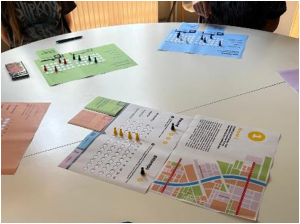The project at a glance
-
Start date:15 Apr 2024
-
Duration in months:15
-
Funding:FNR – Luxembourg
-
Principal Investigator(s):Catherine JONES
About
The need for carbon zero societies, is driven by the climate crises which is harming the health of our societies, economies and environments. Decarbonisation, via net zero policies and actions is required to stabilise global rising temperatures and to minimise crises such as extreme weather events (i.e. flooding, drought and forest fires) as experienced in Luxembourg, across Europe and on a global scale with increasing regularity. The challenge of reaching carbon net zero is, however, intrinsically complex and requires the engagement of people in all aspects of the sustainable energy transition. This energy transition will require social acceptance of both the innovative technology, the spatial effects and the new policies that will radically change the energy landscape but it is a necessity, if we want to achieve stable energy costs and energy resilience in terms of provision. Thus, we expect it will be necessary for local neighbourhoods to become energy production zones – this requires rescaling of energy infrastructure and decentralisation of our energy landscapes. Project Objective: In this PSP classic project EnergyNeighbourhoods we propose to use a community social science approach to introduce young adults to the options available for community energy and to collectively develop a planning scenario for community energy production models for a local neighbourhood. Students will be introduced to the concept of postive energy neighbourhoods and build understanding of the spatial planning and governance dimensions that are pivotal to its success. Using a co-design process, we will design and develop a prototype for a collaborative/strategy board-game to engage citizens and communities in the process of spatial planning of a neighbourhood energy production zone. The game co-creation process will support learning processes since our participants will be actively engaged in all aspects of understanding the content of the game (Jones, 2017). We expect the game to be future-orientated and will thus consider short-term, mid-term and long-term dimensions of neighbourhood energy. The final game will be expected to encourage intercultural and intergenerational dialogue.
Organisation and Partners
- Department of Geography and Spatial Planning
- Faculty of Humanities, Education and Social Sciences (FHSE)
Project team
- Catherine JONES, PI
- Alexander SKINNER, Project member
- Tom BECKER, Project member
